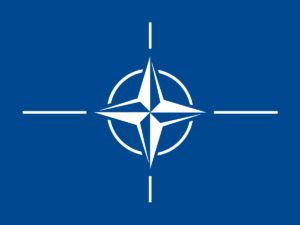In a landmark decision on Feb 26, Hungarian lawmakers have ratified Sweden’s bid to join NATO, marking a significant milestone in the Nordic nation’s quest for Euro-Atlantic security integration.
Jens Stoltenburg, Secretary-General of NATO, supported the decision and shared the news on social media.
The journey towards this momentous occasion has been fraught with challenges and diplomatic intricacies, particularly in navigating Hungary’s initial objections and addressing broader geopolitical dynamics in the region.
Navigating Diplomatic Hurdles
 Sweden’s application to join NATO in 2022 came at a critical juncture in European security, amidst Russia’s full-scale invasion of Ukraine and escalating tensions in the Baltic Sea region.
Sweden’s application to join NATO in 2022 came at a critical juncture in European security, amidst Russia’s full-scale invasion of Ukraine and escalating tensions in the Baltic Sea region.
As a traditionally neutral country, Sweden’s decision to seek NATO membership reflected a strategic reassessment of its security posture in response to evolving threats and geopolitical realities.
However, Sweden’s aspirations faced a significant hurdle in the form of Hungary’s objections. Accusing Sweden of hostility and raising concerns about the implications of its NATO membership, Hungary initially posed a formidable challenge to Sweden’s bid.
The rift between the two nations underscored broader divisions within the European Union (EU) regarding defence and security cooperation, highlighting the complexities of navigating diplomatic relations in a rapidly changing geopolitical landscape.
Hungary’s Endorsement and Orban’s Declaration
 Despite initial resistance, Hungary’s eventual endorsement of Sweden’s NATO bid marks a notable shift in its stance.
Despite initial resistance, Hungary’s eventual endorsement of Sweden’s NATO bid marks a notable shift in its stance.
Prime Minister Viktor Orban’s declaration of readiness to stand in solidarity with fellow NATO members and his acknowledgment of the principle of mutual defence signal a departure from previous objections.
Emphasizing the importance of collective security and unity within the alliance, Orban’s statement reflects a strategic recalibration of Hungary’s security priorities in the face of evolving threats.
The reconciliation between Sweden and Hungary underscores the resilience of diplomatic engagement and the capacity for constructive dialogue to overcome differences and forge consensus on critical security issues.
It also highlights the pragmatic considerations that underpin national security decision-making, as countries grapple with the imperative of safeguarding their interests amidst complex geopolitical dynamics.
EU Values and Strategic Realignment
 The resolution of tensions between Sweden and Hungary also holds broader implications for European security and defence cooperation.
The resolution of tensions between Sweden and Hungary also holds broader implications for European security and defence cooperation.
The rift between the two nations had laid bare divisions within the EU regarding adherence to democratic principles and the pursuit of a unified approach to security challenges.
Accusations of moral superiority and criticism from both sides underscored the challenges of reconciling divergent interests within the European project.
However, Hungary’s endorsement of Sweden’s NATO bid represents a convergence of strategic interests and a recognition of the imperative of collective security in an increasingly uncertain security environment. It underscores the resilience of transatlantic partnerships and the enduring relevance of NATO as a cornerstone of Euro-Atlantic security architecture.
Formal Invitation and NATO Expansion
With Hungarian parliamentary approval secured, Sweden’s formal invitation to join the NATO alliance is imminent. This development not only strengthens collective defence capabilities but also underscores the commitment of European nations to upholding stability and security in the face of external threats.
Sweden’s forthcoming accession, alongside Finland’s, symbolizes a significant expansion of NATO’s eastern flank, bolstering deterrence against potential adversaries and enhancing regional stability.
Furthermore, Sweden’s integration into NATO reaffirms the enduring relevance of the alliance as a guarantor of peace and security in Europe. It outlines the importance of collective security cooperation in addressing contemporary security challenges and underscores the need for unity and solidarity among the members in confronting shared threats.
 Hungary’s approval of Sweden’s membership represents a significant diplomatic breakthrough and a testament to the resilience of transatlantic partnerships in an era of geopolitical uncertainty.
Hungary’s approval of Sweden’s membership represents a significant diplomatic breakthrough and a testament to the resilience of transatlantic partnerships in an era of geopolitical uncertainty.
It highlights the importance of dialogue and cooperation in addressing shared security challenges and highlights the enduring relevance of NATO as a cornerstone of Euro-Atlantic security architecture.
As Sweden prepares to embark on its NATO journey, it does so with a renewed sense of purpose and commitment to upholding the values and principles that underpin the alliance’s mission of collective defence and deterrence.











Comments 2